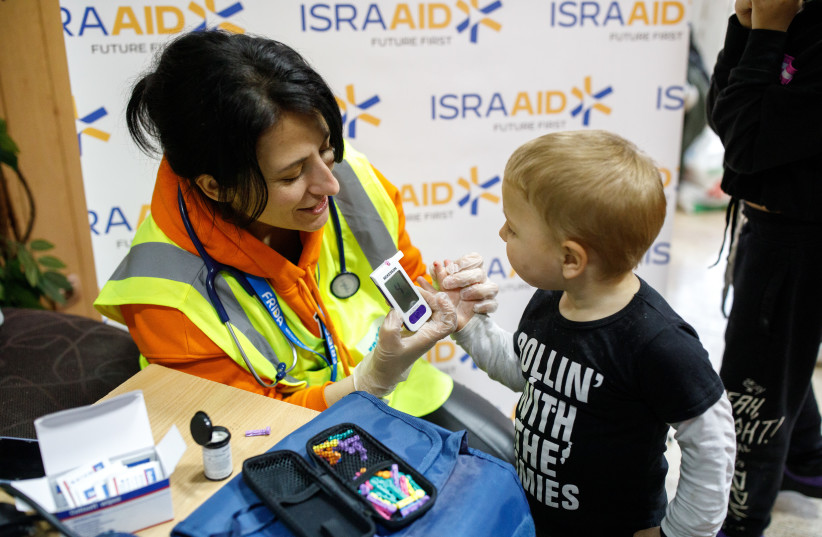Israeli NGO IsraAID has been offering humanitarian support in Ukraine for 500 days after arriving at the Ukraine-Moldova border only 3 days after Russia launched its invasion, the NGO announced on Wednesday.
The organization has been tackling a variety of crises that have plagued Ukrainian civilians since the Russian invasion began - what they describe as their “special military operation.” Their humanitarian aid has spanned across offering mental health support, psychosocial support, water sanitation and hygiene products, healthcare, aid delivery, and logistical support.
Since beginning the response, IsraAID provided over 3 million liters of safe drinking water to hundreds of thousands of residents of Mykolaiv through their installation of reverse-osmosis stations.
What other support has IsraAID provided for Ukraine?
Additionally, the organizations trained dozens of psychologists, who are now able to work with patients in hospitals across the country. An additional 1500 individuals were given mental health and psychosocial support training, which empowered them to offer support to their communities.
IsraAID, continuing its work in aiding the mental health of those suffering during the conflict, partnered with Ukraine Railways which allowed 300,000 workers to receive support.

The NGO has also enabled tens of thousands of people to access medical services in Ukraine and Moldova. The medical services were made accessible in 50 different cities across the two nations, including communities based on the frontline.
Many Ukrainians escaped the invasion by migrating to Moldova, where IsraAID began opening tents to offer a safe and warm space for refugees making the journey in February 2022.
“The ongoing war in Ukraine is one of the largest humanitarian disasters of our generation. Millions of Ukrainians have been displaced and face incredible challenges amid the fighting,” said Yotam Polizer, CEO of IsraAID. “From the beginning, IsraAID has committed to doing everything we can to help the most vulnerable communities – from basic necessities like food, water, and hygiene supplies, to mental health support and building resilience.
"As we look back on the past 500 days in Ukraine, it is clear to us that even if the war were to end today, the humanitarian challenges would continue. We’ve been on the ground from day two, and we’re committed to 1,000 more days if needed, working hand-in-hand with communities to rebuild.”
